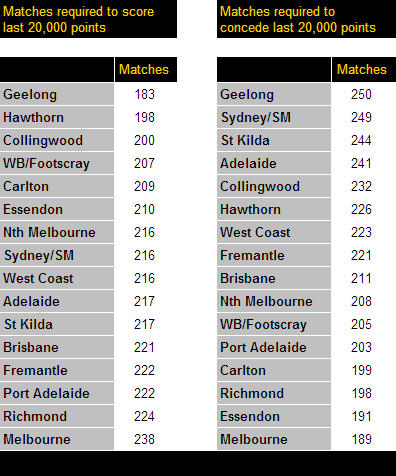No over 50,000 attendances 1982-2013
All v Fitzroy except Collingwood, Essendon and Hawthorn
Carlton v WB/Footscray (Highest attendance 49,406 round 7, 1992 at the MCG - highest ever attendance at a match between these two.)
No over 30,000 attendances 1982-2013
Fitzroy v Geelong
Fitzroy v Nth Melbourne
Fitzroy v WB/Footscray
All v Fitzroy except Collingwood, Essendon and Hawthorn
Carlton v WB/Footscray (Highest attendance 49,406 round 7, 1992 at the MCG - highest ever attendance at a match between these two.)
No over 30,000 attendances 1982-2013
Fitzroy v Geelong
Fitzroy v Nth Melbourne
Fitzroy v WB/Footscray





